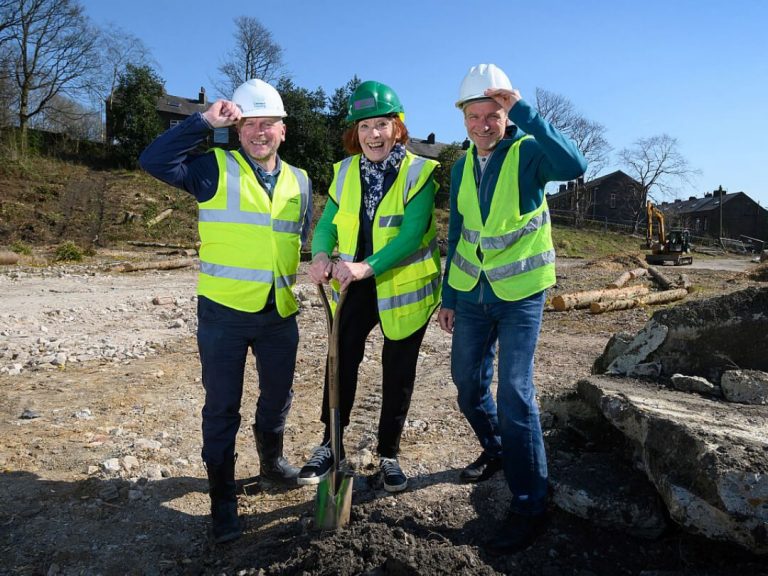Yorkshire’s DJH acquires McBrides in first Southern deal
Aspire Furniture Ltd expands with new Leeds warehouse
Aspire Furniture Ltd, a wholesaler specialising in beds, mattresses, and bedroom furniture, has secured a new 56,400 sq ft warehouse in Leeds. The facility, leased for three years, will support the company’s expanding operations and boost storage capacity. Towngate PLC owns the warehouse, which is located close to Aspire’s manufacturing site, enhancing logistical efficiency.
This move follows a period of significant growth for Aspire, which has transformed from a small operation to a business with a £22 million annual turnover and over 100 employees. The company partners with major retailers such as Argos, NEXT, and Furniture Village and has a strong e-commerce presence. The new warehouse, with features including high ceilings, multiple loading doors, and ample parking, will help Aspire manage rising demand and streamline operations.
The facility’s location in the heart of Yorkshire’s motorway network will provide excellent connectivity, facilitating efficient distribution across the UK.
Yorkshire tyre wholesaler acquires “the future of tyre and Autocare”
Work starts on York student accommodation scheme
Construction begins on £3.8m enterprise centre in Todmorden
Yorkshire law firm Gordons promotes two to partner
Law firm Gordons has welcomed two new partners within its construction and property disputes practices.
Mark Smith joined the firm’s construction team last November from Addleshaw Goddard and has more than 25 years’ experience. He specialises in construction and engineering disputes, risk management and dispute avoidance.
Senior property disputes lawyer Paul Joyce arrived at Gordons from Womble Bond Dickinson last July. He has specialised in property litigation for 13 years and has led the firm’s property disputes team since joining Gordons.
Commenting on their promotions, Gordons’ managing partner, Victoria Davey, said: “Mark and Paul have both made a significant positive impact since they joined the firm which has benefitted clients and colleagues alike.
“They are progressive lawyers with the ability to consistently provide commercially astute, practical advice whilst building enduring client relationships, which are all traits distinct to Gordons’ culture.
“We now look forward to them playing an even greater role within the firm’s leadership team as we continue to evolve our construction and property disputes practices.”
Redundancies as Scunthorpe data centre supplier falls into administration
Leeds to host UKREiiF 2026, set to bring £20m boost to economy
Leeds has secured the UK Real Estate Investment and Infrastructure Forum (UKREiiF) for 2026, marking its fifth consecutive year as the event’s location. The conference, which began in 2022, aims to bring together professionals in the real estate, regeneration, and development sectors. Around 16,000 delegates are expected to attend, potentially generating over £20m for the local economy.
Set to take place at the Royal Armouries Museum, UKREiiF 2026 will offer a platform for investors, developers, and government representatives to discuss emerging investment opportunities. The conference follows a successful history in Leeds, with the 2025 event planned for next month.
This decision aligns with wider growth strategies for the West Yorkshire region, showcasing the city as a hub for investment and infrastructure development. The forum’s continued presence in Leeds highlights its importance in fostering economic growth. However, some local residents have raised concerns about security measures during the event, sometimes affecting day-to-day life in areas such as Leeds Dock.
The final dates for UKREiiF 2026 will be announced during the 2025 conference.
CBI calls for leadership to drive economic growth in Hull and East Yorkshire
The Confederation of British Industry (CBI) has presented its vision for the economic future of Hull and East Yorkshire ahead of the upcoming mayoral election. The new directly elected mayor will have control over a budget exceeding £400 million and additional funding for transport, economic growth, and skills development. This marks a significant opportunity for the region to focus on industrial transformation and create a more competitive local economy.
The CBI’s manifesto calls for the new mayor to focus on key areas, including attracting investment, supporting businesses, achieving net-zero emissions, and enhancing productivity. The organisation stresses that a strong, collaborative approach involving both regional and business leaders will be essential to unlocking the region’s full potential.
As part of its recommendations, the CBI highlights the need for improvements to infrastructure and transport, initiatives for industrial decarbonisation, and the development of a robust local growth plan. By prioritising these areas, the CBI believes the region can foster a thriving economy, particularly in sectors like clean energy and advanced manufacturing.
Yorkshire events provide support to farmers on Budget proposals
The Yorkshire Agricultural Society is hosting a series of free events to help farmers understand and respond to key announcements from the recent Autumn Budget. These sessions are designed to offer practical advice, particularly regarding proposed changes to Agricultural Property Relief (APR) and Business Property Relief (BPR), which could affect inheritance tax.
The events will take place across Yorkshire, starting on Monday, 28 April, at Farmer Copleys in Pontefract, followed by Tuesday, 29 April, at Driffield Showground, Wednesday, 30 April, at The Huntsman Inn in Holmfirth, and Thursday, 1 May, at The Golden Lion in Northallerton. Each event will open at 6.30pm with a bar, followed by hot food at 7pm, and presentations with a Q&A session running from 7.30 to 9.30pm. Attendees are required to register in advance.
The sessions will feature a range of experts. Duncan Winspear from Savills will provide insights into assessing business strengths and weaknesses, and strategies for maximising income while managing risk. Chris Humphreys from BHP Accountants will focus on planning tax affairs amid economic and political uncertainty, emphasising mitigating the impact of changes to Agricultural Property Relief and Unspent Pension Funds.
Legal experts Orlando Bridgeman and Lucy Hargreaves from Wrigleys Solicitors will discuss inheritance tax, highlighting the likelihood of increased lifetime gifts to avoid death duties. They will also address issues of business control, protection against divorce or irresponsible family members, and succession planning when the next generation is not yet ready to take over.
Heather Wildman of Saviour Associates will explore how the proposed policy changes affect succession planning and offer strategies for future-proofing farm businesses.
RPM International acquires The Pink Stuff owner Star Brands
Star Brands, the Leeds-based company behind the viral cleaning brand The Pink Stuff, has been acquired by RPM International Inc., a global company with over $7bn in sales. RPM, known for its portfolio of leading brands such as Rust-Oleum and DAP, has purchased Star Brands from Mobeus, which has owned the business since 2019.
The acquisition marks the culmination of a successful partnership between Mobeus and Star Brands, during which the company evolved from a private-label cleaning products manufacturer to a globally recognised consumer brand. The Pink Stuff’s success has been driven mainly by its viral presence on social media platforms, particularly TikTok, where it gained traction through the “CleanTok” trend.
Since Mobeus’s involvement, The Pink Stuff has expanded into 118 countries, with the US becoming its largest market. Partnerships with major retailers such as Walmart and Amazon have significantly increased sales, with revenues growing over fivefold to £150m. The company’s earnings before interest, tax, depreciation and amortisation (EBITDA) have increased 15 times during this period.
Mobeus has also facilitated strategic moves including the acquisition of Star Brands’ US distributor and efforts to strengthen the company’s intellectual property, particularly in the US and European markets. The sale is Mobeus’s largest realisation to date.
Bradford secures £13m funding for City Village housing project
Bradford’s ambitious City Village regeneration initiative has been awarded over £13 million to help drive the development of up to 900 new homes in the city centre. This investment is part of a broader scheme by the West Yorkshire Combined Authority (WYCA) to kickstart housing projects on brownfield sites across the region.
The funding will support the early phases of the project, which involves redeveloping key sites, including the Kirkgate Shopping Centre and Oastler Market, as well as council-owned car parks around Chain Street. These areas will be transformed into residential communities as part of a wider effort to revitalise central Bradford’s housing market.
In addition to this new funding, the City Village project will benefit from ongoing support from housing developers. The development is expected to span multiple phases, with WYCA’s contribution covering the first two. The cost for these initial phases is projected at £33 million for Phase 1 and £58 million for Phase 2.
Bradford City Council has also moved forward with plans to use compulsory purchase powers, if necessary, to ensure the sites are cleared for redevelopment. The Kirkgate and Oastler Market locations will be vacated following the completion of the new Darley Street Market, which will replace the existing facilities.
The regeneration project is crucial for transforming Bradford into a more vibrant, sustainable, and community-friendly city centre. It addresses the shortage of new build homes in the area, with Phase 1 focusing on mixed-tenure townhouses and Phase 2 delivering rented apartments. Subsequent phases will provide additional rental housing, including around 630 apartments across multiple developments.
Construction to start on multi-million pound Whitby maritime development
Major marketing investment for Yorkshire bakery brand
York Central appoints social impact consultant
Regional leaders back Bradford-boosting plans
Lowell Group considers sale of Nordic debt collection operations
Lowell Group, a debt collection company based in Leeds, is reportedly considering selling its Nordic business operations span Denmark, Finland, Norway, and Sweden. The potential sale, valued at up to €730 million (£610 million), is still in the early stages, and the final price may be lower.
Barclays is managing the auction process, and Lowell’s Nordic division was acquired from Intrum in 2018. The division includes balance sheet portfolios valued at €475 million (£400 million) and a third-party debt-servicing business.
Owned by private equity firm Permira and Canada’s OTPP pension fund, Lowell Group serves around 15 million customers across Europe. In its most recent financial year, the company reported cash earnings before interest, tax, depreciation, and amortisation of £774 million.
Tech company scales up with Finance Yorkshire investment
Khalbros and Torsion to drive £1bn Leeds city regeneration project
Khalbros and Torsion Group have joined forces in a venture to redevelop the Eastgate Quarter in Leeds, a £1bn mixed-use regeneration initiative. The acquisition of the site signals a shift from its previous retail-focused vision to a comprehensive residential and commercial hub, set to redefine a key area of the city.
Located adjacent to Victoria Gate, the Eastgate Quarter development will feature a variety of housing options, including student accommodation and build-to-rent properties. It will also incorporate office spaces, leisure facilities, and lifestyle amenities, creating a fully integrated community designed for modern urban living.
The project is expected to be a driving force in Leeds’s future growth, contributing to the city’s evolution with new homes, jobs, and commercial spaces. The development aligns with the city’s broader ambition for sustainable and inclusive growth, with a focus on supporting local businesses and employing Leeds-based firms in the process.
Parseq expands secure print capacity with new Rotherham facility
Parseq, a major UK managed service provider, has launched a new secure print facility in Rotherham, South Yorkshire, in response to increasing demand from both domestic and international clients. The company has invested nearly £500,000 in advanced secure print technology and equipment, with plans to employ up to 20 staff at full capacity.
This new site marks Parseq’s third UK-based secure print operation, reinforcing its position as a global leader in producing secure, fraud-proof print products. The company already prints over 50% of the UK’s cheque volume and provides secure printing services for financial institutions, educational certificates, election ballots, and gift vouchers.
With an emphasis on fraud prevention, Parseq’s secure documents incorporate multiple layers of encryption and other security features. As demand for outsourced print services grows, Parseq aims to offer greater capacity and continuity for its increasing global customer base, especially as businesses look to reduce costs and focus on core operations.





















